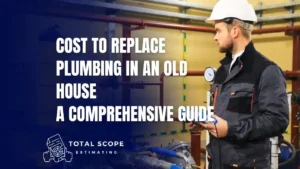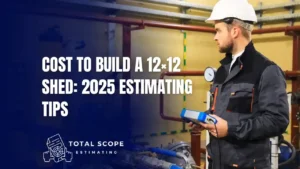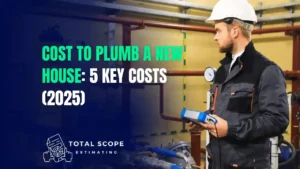If you have ever been involved in house construction or renovation, you must be aware of the term “HVAC Estimator.” You must be wondering who this HVAC estimator is, what does an HVAC Estimator do? And what its role is in the construction and building industry.
HVAC stands for Heating, Ventilation, and Air Conditioning. It is a crucial component of any construction project, whether residential or commercial. The HVAC estimator plays a critical role in the early stages of any construction project by estimating the cost and materials required for installing and repairing these systems.
But their responsibilities are far beyond just crunching numbers. They have the necessary expertise and qualifications to examine all the financial and technical components while installing these systems. Let’s delve into the question of what an HVAC estimator does and what role they play in any construction project where heating, cooling, and ventilation are required.
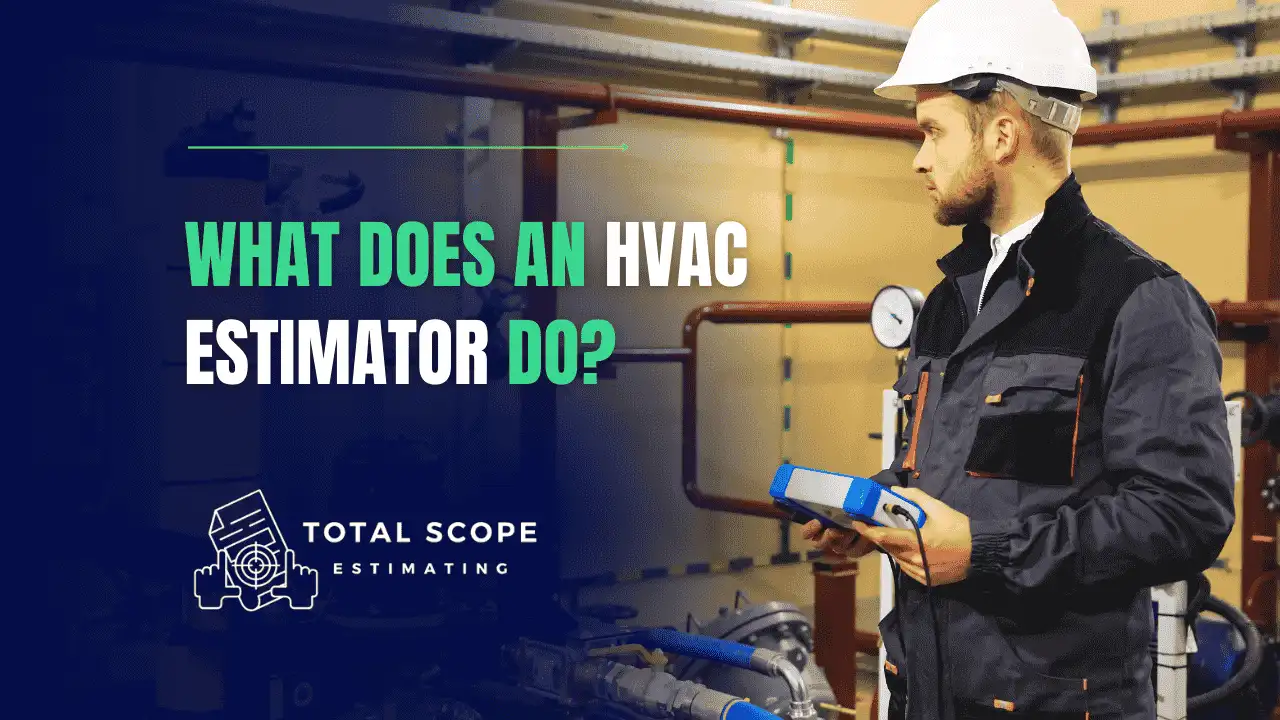
Introduction to HVAC Estimators
If you’ve ever wondered who makes sure an HVAC project runs smoothly without breaking the bank, let me introduce you to the HVAC estimator. These unsung heroes play a huge role in the world of heating, ventilation, and air conditioning. Simply put, an HVAC estimator is the person who crunches the numbers, plans the details, and figures out what it’ll take to get a job done right—before anyone even picks up a tool. They’re like the navigators of the HVAC world, steering projects toward success with precision and foresight.
The Role Of An HVAC Estimator
At its basics, an HVAC estimator is responsible for calculating the costs of installing, repairing, and maintaining these systems. He calculates the costs of these systems themselves and forecasts the material costs, person-hour costs, overheads, and any other relevant expenses. He is responsible for estimating the project’s total cost before it begins.
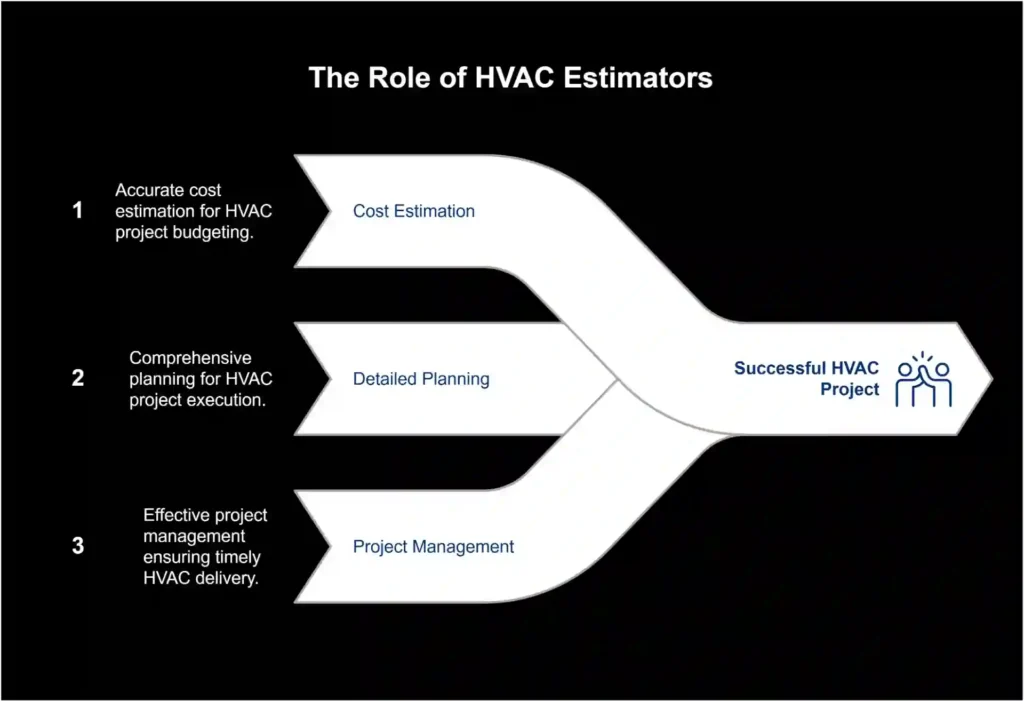
However, his role is far beyond this. He must have a sound knowledge of the mechanical skills and construction market to ensure that the prices are accurate and reasonable.
Here’s a deeper insight into what an HVAC estimator does:
1. Analyzing Project Requirements
Before providing an estimate for the HVAC project, an HVAC estimator needs to understand the construction project completely. For this, he carefully reviews all the project blueprints and architectural and mechanical plans before starting the project. He will look at the building size, its intended use (either residential or commercial), the number of rooms, and the level of comfort the contractor demands at these places.
Considering all these aspects, he will design the HVAC system and its cost. The estimator will also account for the local climate and energy requirements. For example, the number of heaters and air conditioners will vary depending on the area’s environment. The energy-saving options will also impact the cost of the materials and, thus, the whole project.
You might like this too: How To Estimate New Construction Plumbing Cost in 6 Steps
2. Estimating Equipment and Materials
One of the primary responsibilities of an HVAC estimator is to calculate the cost of all materials needed for the HVAC system. This includes everything from the main unit (such as a furnace, air conditioner, or heat pump) to the ducts, vents, thermostats, insulation, and any other related components. The estimator will conduct research and select the appropriate equipment based on the project’s specifications.
HVAC systems come in various sizes, efficiencies, and brands, leading to significant cost differences. Therefore, the estimator must have a strong knowledge of different types of equipment and materials to ensure that accurate and effective selections are made.
3. Calculating Energy Efficiency and Existing Costs
Energy efficiency is very important in modern construction, and HVAC systems play a big role in this. An HVAC estimator needs to understand energy codes and sustainability goals to ensure that the systems they suggest meet these standards.
The estimator should consider both the initial installation costs and the long-term costs of the system, such as maintenance and energy use. While energy-efficient systems may cost more upfront, they can save building owners money over time because of lower operating expenses. The estimator must compare these potential long-term savings to the initial investment to give a full financial picture.
Also Read: Plumbing Estimates 101
4. Creating The Estimate and Proposal
After considering all the important factors like the size of the system, the type of equipment needed, the materials, labor, and any special requirements, the HVAC estimator will create a formal estimate. This estimate will detail the costs involved, helping the client understand where their money goes. It will include:
- Cost of equipment and materials
- Labor costs
- Additional costs such as permits, taxes, and inspections
- Estimated energy savings for energy-efficient systems
Typically, the HVAC estimator will present this estimate as a detailed proposal. This proposal may also offer options for different systems or equipment. In some cases, the estimator might provide several pricing choices for the client based on their budget or desired system features.
5. Coordinating With Other Contractors
HVAC systems need to work well with other building systems, like electrical and plumbing. An HVAC estimator collaborates with electricians and plumbers to make sure the HVAC system fits the overall building plan. This teamwork helps the installation process go smoothly and ensures the system meets building codes and safety standards.
Why Does the Role of an HVAC Estimator Matter?
The role of an HVAC estimator is very crucial for both the construction contractors and clients. For construction contractors, accurate estimates are essential as they allow them to plan better for the project expenses and to allocate the resources properly. It helps them to ensure that the project is completed within the estimated cost and timeline.
For construction clients, it helps them to foresee that they get the best value for their money. It helps them to ensure that the HVAC systems are installed, giving them the desired output with the maximum energy efficiency.
Thus, the role of an HVAC estimator is very critical for any construction project. With a clear, comprehensive estimate, both contractors and clients can avoid cost overruns during the installation process, reducing delays and unnecessary expenditures.
Skills and Qualifications Needed to Become an HVAC Estimator
Stepping into the role of an HVAC estimator means you’re ready to blend technical expertise with a knack for numbers and people skills. It’s not just about slapping a price tag on a project—it’s about understanding HVAC systems inside and out, solving problems on the fly, and keeping everything organized. Whether you’re fresh out of high school or bringing years of experience, this career calls for a specific set of abilities to shine.
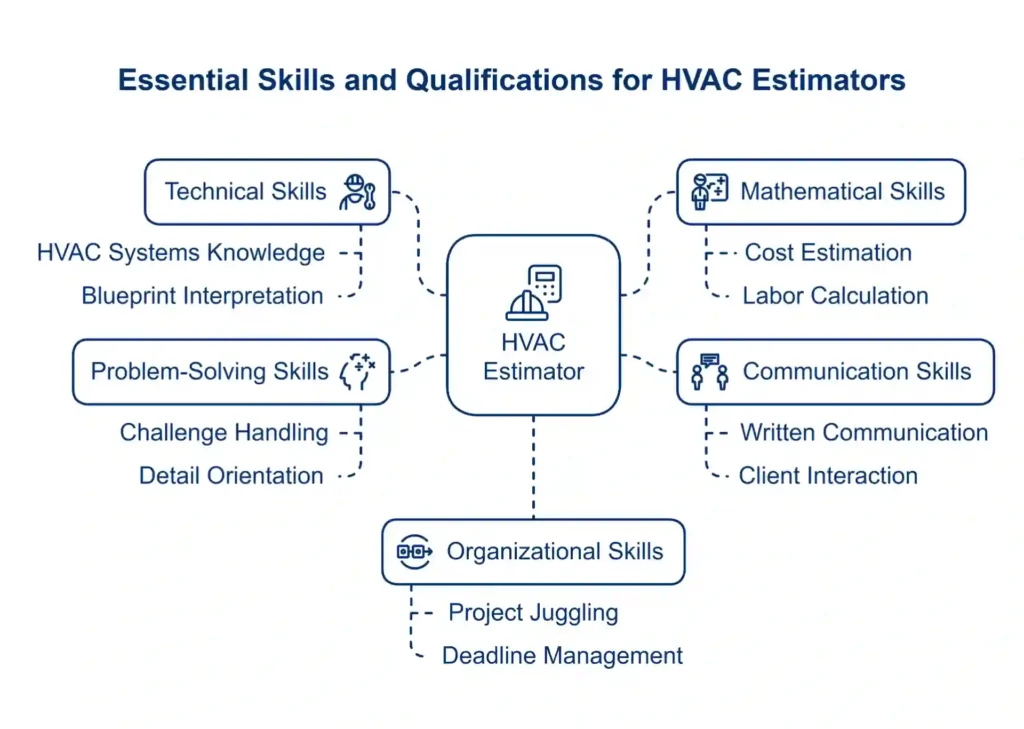
Here’s what you’ll need to get started and succeed, based on insights from across the web.
| Skill/Qualification | Description |
|---|---|
| HVAC Systems Knowledge | Deep understanding of heating, cooling, and ventilation systems is a must. |
| Math Knowledge | Strong grasp of calculations for accurate cost, labor, and material estimates. |
| Technical Skills | Ability to interpret blueprints, specs, and use industry-specific tools. |
| Excellent Written Communication | Crafting clear, professional estimates and reports for teams and clients. |
| Problem-Solving Skills | Quick thinking to tackle unexpected challenges in project planning. |
| Detail-Oriented | Catching tiny details in plans or numbers to avoid costly mistakes. |
| Attention to Detail | Precision in every step, from initial assessment to final estimate. |
| Customer Service Mindset | Keeping clients happy with clear explanations and reliable service. |
| Mechanical Aptitude | A natural feel for how HVAC equipment and systems function. |
| Strong Organizational Skills | Juggling multiple projects while keeping everything on track. |
| Time Management | Meeting deadlines without sacrificing quality or accuracy. |
| Ability to Lead and Motivate Teams | Guiding crews or collaborating with others to bring the estimate to life. |
| High School Diploma or GED | The baseline education needed to start building your career. |
| Years of HVAC Estimation Experience | Real-world practice that sharpens your skills and boosts confidence. |
| Pass Background Checks | Clearing initial employment criminal checks for trust and reliability. |
Conclusion
In this guide, “What does an HVAC Estimator do”, we have learned that HVAC estimators are essential in the construction and renovation industries as they provide accurate, detailed, and realistic cost projections for HVAC system installations. Their expertise ensures that HVAC systems are cost-effective, efficient, and customized to meet the specific needs of each building. If you are planning a construction or renovation project, hiring an HVAC estimator can help you make informed decisions about the HVAC system, keeping your project on schedule and within budget. Their knowledge is crucial for the overall success of your project.
If you are looking for top notch services in USA, We also offer services like HVAC Estimating, commercial, residential or industrial and Mechanical Insulation Estimating Services. Contact us now and get 35% off on your first order now.

